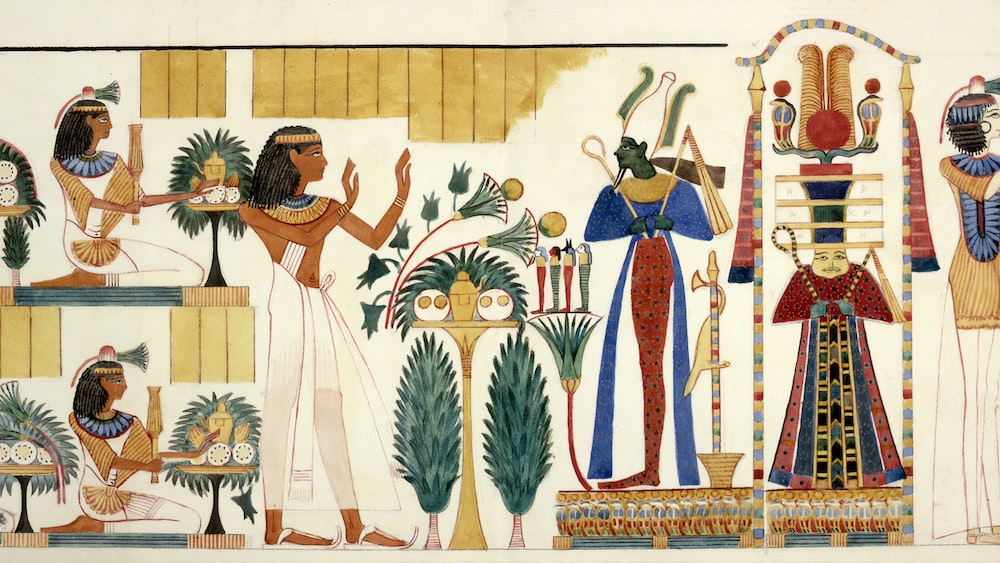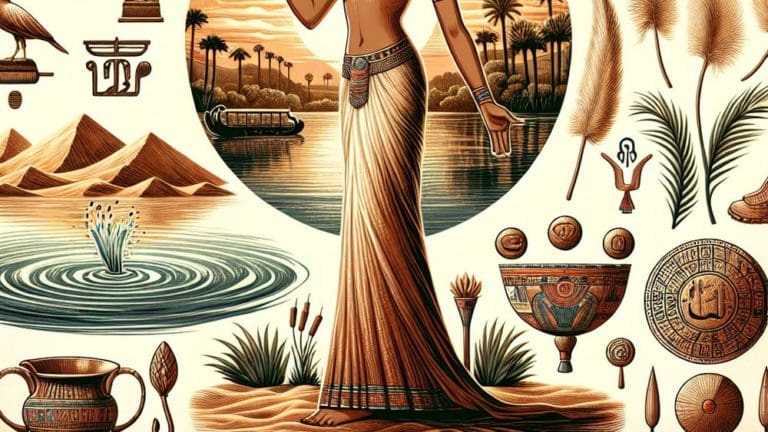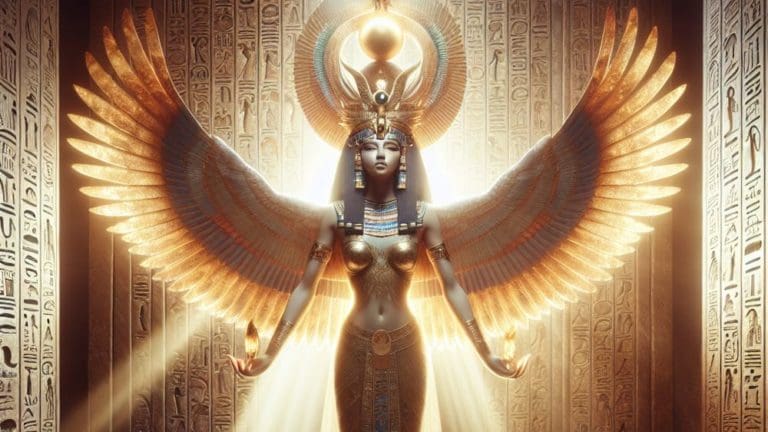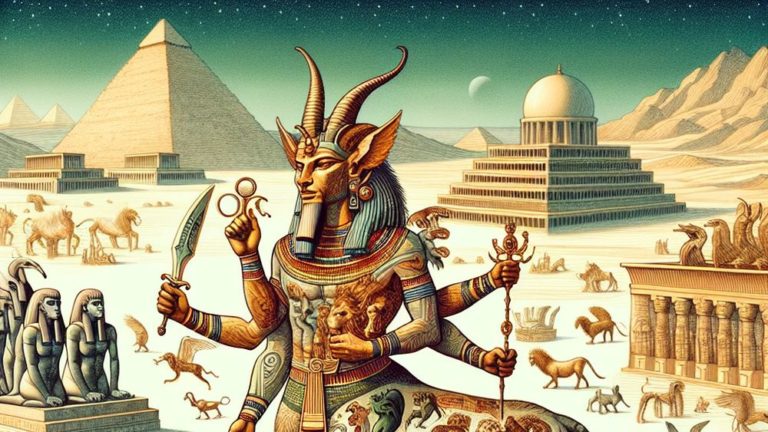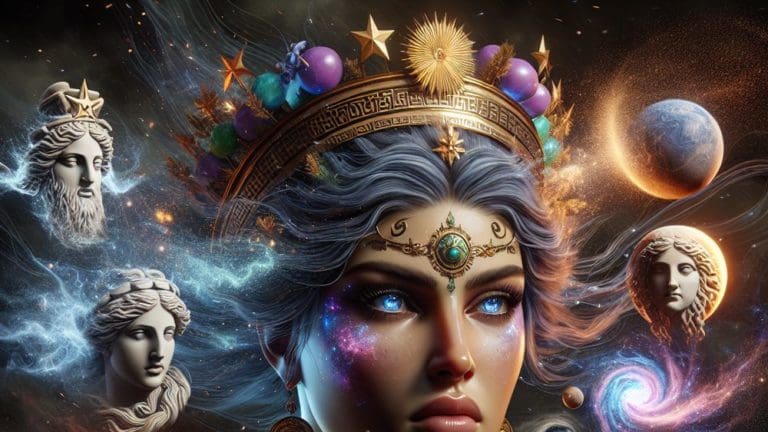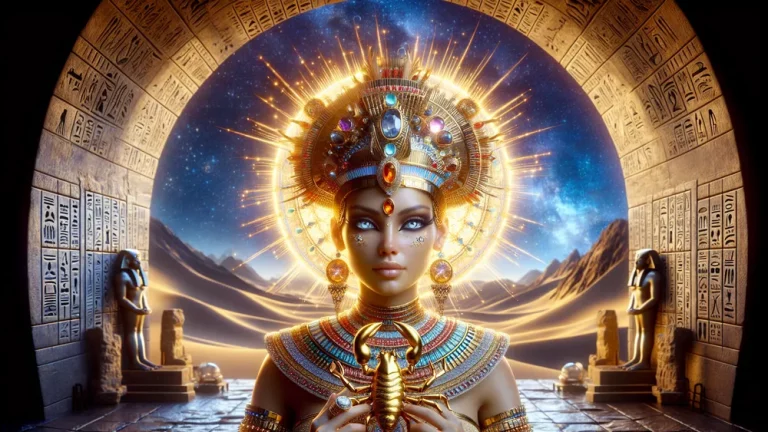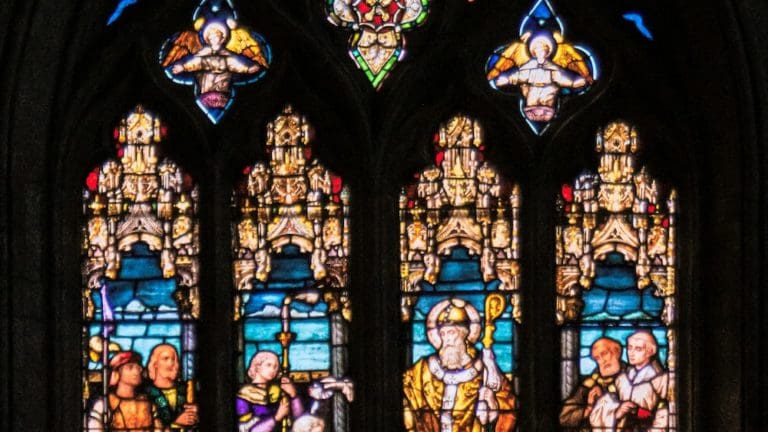Tefnut Egyptian God Weakness Unveiled: Mythology Revealed
Tefnut Egyptian God Weakness Unveiled: Mythology Revealed
Have you ever wondered about the mysterious figures that shaped ancient cultures, their myriad secrets yet to be fully unraveled, their mythical powers, and their intriguing weaknesses? Well, you’re about to embark on an enlightening journey through time to ancient Egypt, exploring the mythology of a revered deity- Tefnut. With each line, you’ll get closer to unveiling the essence of Tefnut Egyptian god weakness.
Stepping away from the hustle and bustle of our technologically driven world, imagine being imbued with the intoxicating scent of the Nile, the monumental pyramids’ shadows stretching at your feet. Here, we delve into a past rich with tales of immortal gods and fascinating hieroglyphics, a past where deities played essential roles, and their stories were etched in stone.
As you join me and share in my passion for uncovering the forgotten past’s secrets, prepare to fuel your burning curiosity about the god Tefnut. Perhaps you’re an enthusiast, a traveler, an amateur archaeologist, or a lover of history, wanting to understand gods as more than celestial figures with immense powers. This exploration promises to deepen your knowledge and offer fresh perspectives.
Understanding Tefnut: The Egyptian Goddess
Unraveling ancient Egyptian mythology is no small feat. It’s a labyrinth of intrigues and wonders, intricate relationships among gods, and tales holding profound lessons. Central to our exploration today is the lioness Goddess, Tefnut, known for her unique powers and equally intriguing weaknesses.
Who is Tefnut?
Tefnut, the very name conjures images of an ancient world where gods ruled, influencing the natural and the supernatural. She was a mighty Egyptian goddess, an integral part of the ancient Egyptian pantheon. Recognized as the deity of moisture, dew, and rain, Tefnut was revered and slightly feared.
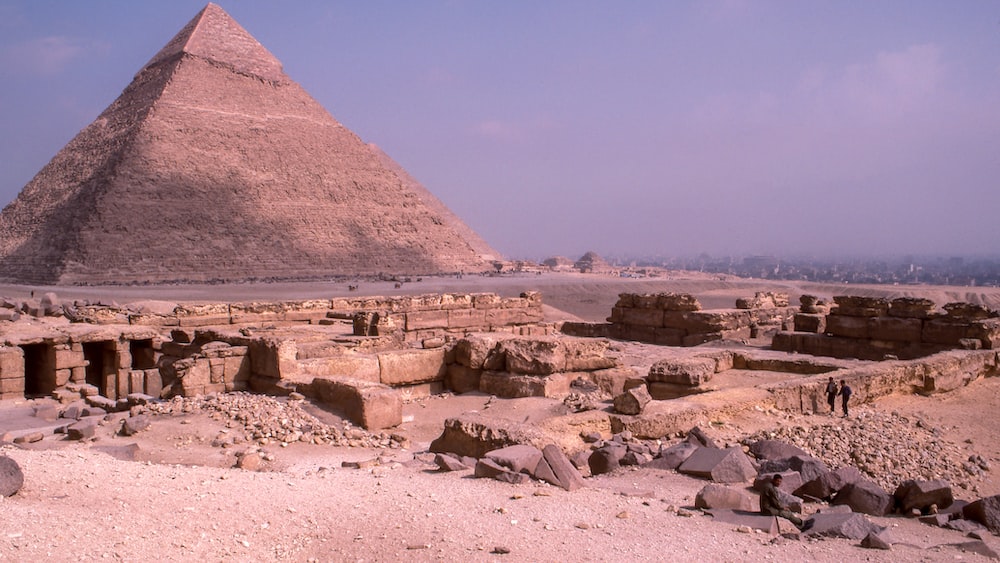
This respect for Tefnut sprang from her association with life and fertility due to her control over the elemental forces of rain and moisture. Her influence, though subtle, was instrumental in the daily life and cultural practices of ancient Egyptians.
Tefnut, the mighty Egyptian goddess, held great power as the deity of moisture and rain, influencing the daily lives and cultural practices of ancient Egyptians.
The Mythology of Tefnut
The stories about Tefnut’s origin weave intriguing plots. According to the Heliopolis cosmology, one of the most ancient and widely recognized religious beliefs in Egypt, Tefnut was born from the god Atum’s spit or, in some versions, his semen. Alongside her brother and consort, Shu, the god of air, she formed part of the divine Ogdoad, a group of eight deities revered in Hermopolis.
Legend has it that Tefnut and her brother, Shu, brought forth Geb (the earth) and Nut (the sky). This divine lineage signified Tefnut’s critical role in the cosmological makeup of ancient Egypt. Her inception and the subsequent procreation symbolize the primordial creation process, further solidifying her high standing among the deities.
The Role and Importance of Tefnut in Ancient Egypt
Tefnut was perceived more than just as a goddess of moisture; she was a symbol of balance, part of the duality needful for harmony in the universe. This balance was seen in the pairing of Tefnut with Shu, representing wet and dry, respectively – both necessary for life to thrive in ancient Egypt.
Besides this, Tefnut also held significant religious importance, forming the eminent group of deities known as the Heliopolitan Ennead – nine deities worshipped primarily at Heliopolis. Her central role in the creation myth of Heliopolis and her association with the vital element of moisture made Tefnut an essential part of religious observance and ritual practices.
The Powers of Tefnut
Now, we delve into the powers and might of Tefnut- a goddess holding an essential part of the life-giving forces of nature. Her name means “That Water,” denoting her deep connection with the waters governing fertility and growth.
What is Tefnut the Goddess Of?
A mystery often cloaks a god’s true domain, but there’s no such obscurity with Tefnut. She was predominantly the goddess of moisture, dew, and rain. In many ways, Tefnut personifies the life-giving, nourishing aspect of water, essential for the fertile lands of the Nile Basin.
Moreover, Tefnut was also revered as a goddess of the sky, a symbol of cosmic order. In her form as a lioness deity, Tefnut was often associated with the sun god Ra – both representing the sun’s protective heat.
The ancient Egyptians saw Tefnut as a goddess of justice and order. In the Book of the Dead, she was invoked to provide the deceased with water and offerings, facilitating their safe passage to the afterlife.
Tefnut, the goddess of moisture and rain, symbolizes the life-giving aspect of water and is associated with justice, order, and the sun god Ra.
What are Tefnut’s Powers?
In understanding the powers of this revered goddess, it’s crucial to note her control over moisture. Tefnut’s power effected nourishing rain, ensuring the survival of crops and, by extension, the survival of the ancient Egyptians. Excelling in her nurturing role, the fertility of the entire Nile region was attributed to her favor.
Additionally, known as the ‘Lady of Flame,’ Tefnut had a fierce aspect. Her wrath was feared, as she could withhold the much-needed rain or unleash devastating storms. She had the dual power to give life and to destroy, a potent reminder of her role in maintaining balance and order in the world.
The Weakness of Tefnut
Diving into Tefnut’s compelling nature, and the nature of gods in general, often involves unearthing not only their divine powers but also, quite intriguingly, their weaknesses. Unveiling Tefnut Egyptian god weakness offers a nuanced understanding of her mythology and her impact on ancient Egyptian society.
Identifying Tefnut’s Weakness
One of the mainstays of any great saga includes a god or goddess’s vulnerabilities, which often act as a metaphor for human frailties. The captivating storyline of Tefnut, the Egyptian goddess of dew and rain, is no exception.
Surprisingly, the tales surrounding Tefnut indicate that the goddess, despite her significant powers, was not immune to feelings of loneliness and isolation. Yes, you heard that right! The Tefnut Egyptian god weakness revolves around emotions, primarily those of solitude. As the divine embodiment of water, she held power in every droplet, yet an absence of emotional connection became her critical weakness.
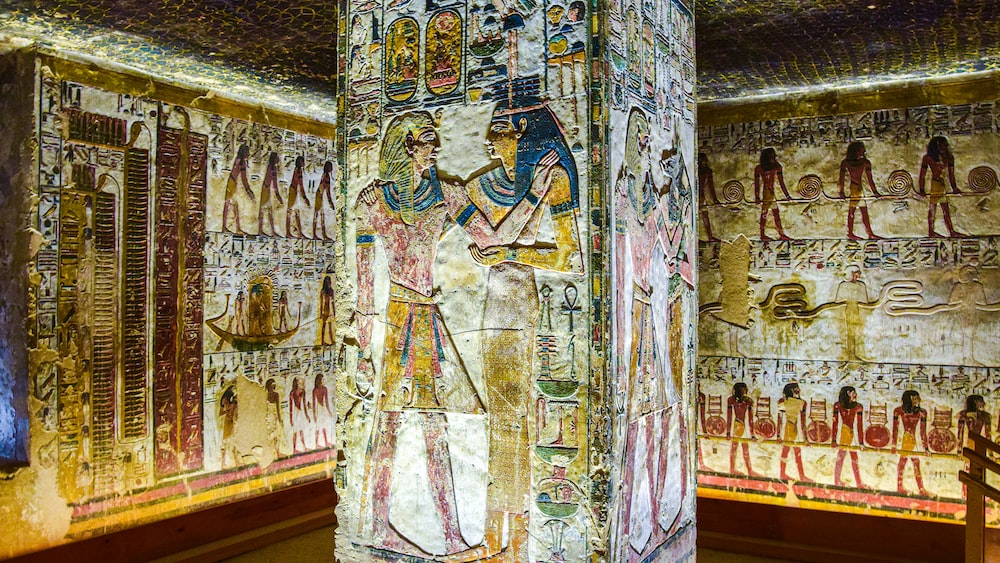
Tefnut’s vulnerability arose from her early separation from her parents, the sky goddess Nut and earth god Geb, immediately after her creation. The ensuing loneliness from their absence rendered a dichotomy in ancient Egyptian mythos – a goddess, powerful and mighty, yet emotionally broken.
How Tefnut’s Weakness Influenced Ancient Egyptian Myths
It is fascinating to observe how Tefnut’s emotional vulnerability moulded the myths of ancient Egypt. Her separation and subsequent reunion with her parents, Nut and Geb, underscored the essentiality of familial love and unity, a lesson absorbed by various generations of Egyptians.
Moreover, this tale, laced with the bittersweet undertones of Tefnut’s isolation, presented the ancients with a softer side to the gods. Their deities were not as invincible as they initially assumed, adding layers to the belief system of Ancient Egypt. The discovery that even a goddess like Tefnut could grapple with loneliness served as a comfort, allowing individuals to find solace in their personal battles knowing that even divinity shared their struggle.
Furthermore, the tale of Tefnut’s challenge with loneliness altered the direction of several myths in the Egyptian pantheon. Her surmounted obstacles served as inspiration for other tales, amplifying the message that reconciliation and familial love can overcome solitude, echoing an invincible human spirit.
Tefnut’s Family and Relationships
As we delve deeper into the annals of history and explore the intimacy of Tefnut’s familial connections, there’s a stark reminder of the intricacies that governed the lives of these ethereal beings. Tracing the lineage and relationships of Tefnut further unravels her intricate mythos and helps us comprehend how pivotal relationships were to understanding ancient Egyptian culture.
Meet Tefnut’s Family
Indeed, Tefnut’s tale begins with the unfolding of the Heliopolitan creation myth, in which the sun god Ra, through an act of divine will, brought Tefnut and her brother Shu into existence. Shu, the god of air and sunlight, and Tefnut, the goddess of water and moisture, held a great significance in the creation of the world, according to Ancient Egyptian belief.
The familial tapestry further expands when Tefnut and Shu together birth the sky goddess Nut and the earth god Geb. The legend thus intricately links Tefnut to some of the most pivotal deities in Egyptian mythology, providing us with a delicate and amplified tapestry of divine relationships.
The interconnected nature of Tefnut’s familial relationships significantly influenced her mythology. It continued to shape her decisions, power dynamics, and, most importantly, her strengths and weaknesses.
Tefnut and Nut
Emanating from the heart of this celestial family was the bond between Tefnut and her daughter Nut, a bond steeped in warmth and complexity. Nut, the sky goddess, found herself estranged from her mother Tefnut soon after her birth, a separation that gnawed at their relationship and birthed Tefnut’s lingering sense of isolation.
Despite the initial chasm, the tale spoke of love’s enduring power. Upon their reunion, their relationship bloomed. Nut’s doting affection helped Tefnut confront her loneliness, thus presenting a vivid tableau of maternal affection within the pantheon of Egyptian deities.
The enduring power of love is showcased in the bond between Tefnut and her daughter Nut, as Nut’s affection helps Tefnut confront her loneliness and brings their relationship to bloom.
Tefnut and Geb
The liaison between Tefnut and her son Geb is just as remarked upon in mythology. Geb, the earth god, played a decisive role in Tefnut’s narrative. Although distanced in infancy, Tefnut sought solace in Geb’s grounded nature once reunited, finding a part of her fragmented self mended in her son’s presence.
In Geb, Tefnut found a reminder of her powerful ties to the terrestrial world, intensifying her role in the daily life of Ancient Egyptians. The bond they shared reaffirmed the theme of reconnecting severed ties, underlining the resilience of the human – or godly – spirit against the aches of isolation.
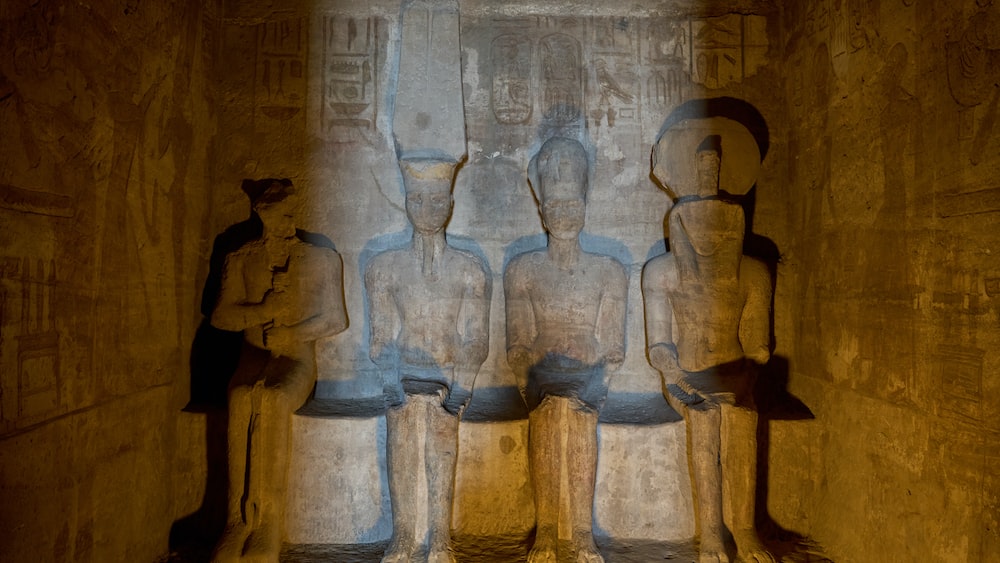
Tefnut’s Influence on Ancient Egyptian Society
As we continue our journey, it’s apparent that Tefnut, mighty in her powers and poignant in her weaknesses, significantly influenced ancient Egyptian society. A deity brimming with complexity, she shaped the Egyptians’ faith, leaving behind a potent legacy that echoes to this day.
Worship of Tefnut
Tefnut enjoyed a dedicated following in ancient Egypt, earning her a unique place in the hearts of the ancients. Devotees revered her for her association with life-giving water, symbolizing fertility and renewal. Her temples were often filled with fervent prayers for rain and bountiful harvests.
In ironic contrast, Tefnut’s weakness of loneliness found an echo in her devotees’ hearts. She became a divine symbol of companionship, an empathetic figure that those feeling lonesome could turn to in prayer. Thus, her worship saw a union of great power and poignant weakness, uniquely defining Tefnut’s divine integrity.
Tefnut’s Legacy
As the curtains fall on our exploration of Tefnut’s tale, her enduring legacy in Egyptian mythology becomes apparent. Despite her emotional struggles, Tefnut emerged as a source of strength and hope for many, her influence rippling across the annals of history.
Her powers and weaknesses molded the beliefs of a civilization, leaving an indelible mark on the psyche of ancient Egyptians. Her fortitude against isolation became an emblem of resilience, making the goddess more relatable and generating a more profound connection between deity and devotee.
Today, Tefnut’s tales continue to inspire, her stories taught as a testament to the human capacity to love and endure despite adversity. Her legacy, imbued with raw emotionality and celestial power, holds a mirror to ourselves, reminding us of our shared vulnerabilities and strengths.
Tefnut in Modern Interpretations
Tracing the footprints of Tefnut, the ancient Egyptian goddess, within modern interpretations reveals a fascinating tapestry of culture, art, and mythology.
Tefnut in Literature and Pop Culture
Characters modeled after Tefnut have found their way into numerous literary works and pop culture references. Noted for her distinct powers stemming from her association with moisture and dew, her mythological uniqueness has been harnessed to develop characters with intriguing depths and intriguing weaknesses.
In her literary exploration within various genres – fantasy, adventure, historical fiction – authors have breathed life into Tefnut in manifold ways. They’ve highlighted her independence, her often-cited ‘tefnut egyptian god weakness’ – her emotional vulnerability to her family, namely Ra and Shu, and her turbulence with Seth, stirring readers’ interest and ensuring Tefnut’s enduring presence in our collective consciousness.
At the same time, in pop culture – from video game characterizations to television and film roles – modern interpretations of Tefnut frequently underscore her inherent strength, resilience, and the ever-intriguing interaction with her own weaknesses. These renderings provide a rich canvas for incorporating ancient mythology into contemporary narratives.
Characters modeled after Tefnut have been incorporated into various literary works and pop culture references, showcasing her unique powers and vulnerabilities and ensuring her enduring presence in our collective consciousness.
The Modern Relevance of Tefnut’s Mythology
In light of the resurging interest in ancient mythology, delving into the life, powers, and vulnerabilities of Tefnut holds a fresh relevance today. Modern psychology draws parallel between ancient myths and human behavior. Thus, understanding Tefnut’s mythology, especially her weakness, opens new vistas for interpreting human emotions and relationships.
Moreover, Tefnut’s story – her powers, weakness, and relevance – remain a fertile ground for analogies in interpreting socio-political dynamics. Perhaps more than anything else, Tefnut’s mythology, marked by her interplay of strength and vulnerability, inspires a deeper exploration of the human condition and encourages readers to wrestle with their own strengths and weaknesses.
FAQs
1. What was Tefnut’s greatest weakness according to ancient myths?
Tefnut’s greatest weakness according to ancient myths was her emotional entanglement and vulnerability towards members of her family, particularly towards Ra and Shu.
2. How did Tefnut’s weakness impact her role in the Egyptian pantheon?
Tefnut’s weakness had an intricate impact on her role in the Egyptian pantheon. It shaped her interactions with other deities and influenced the way myths and narratives around her developed.
3. Are there any modern interpretations of Tefnut’s weakness?
Modern interpretations of Tefnut’s weakness often revolve around her struggles with balancing her power and vulnerability, especially in the context of her relationships with other gods in the pantheon.
4. How did the ancient Egyptians view Tefnut’s weakness?
The ancient Egyptians viewed Tefnut’s weakness as part of her personality, a testament to her humanity. They considered it not as an impediment but as an attribute that enriched her character and made her a relatable figure within their pantheon.
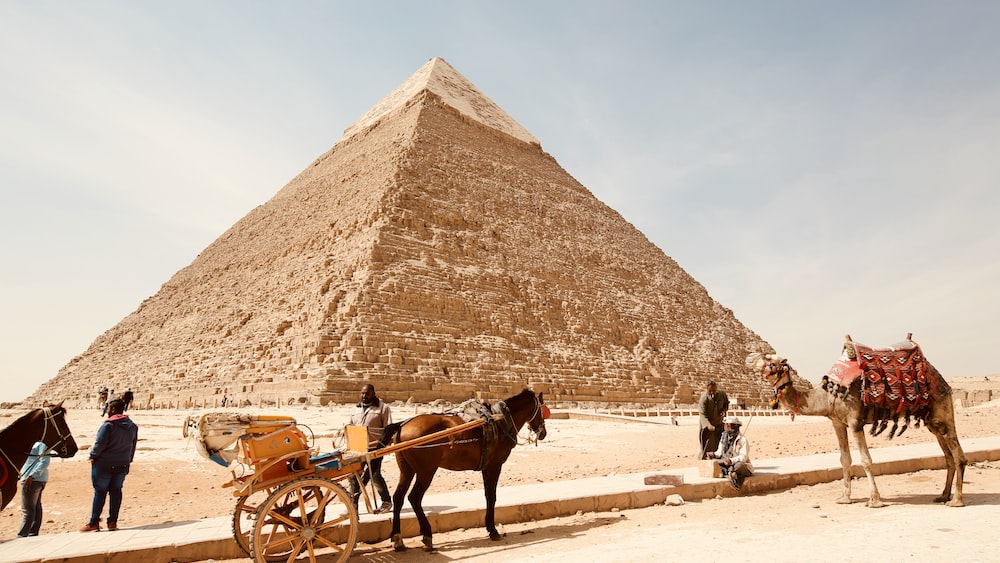
Conclusion
On this journey, we have traversed the enigmatic world of Tefnut, the ancient Egyptian Goddess, and unearthed the intricacies and enigma surrounding her character, including her strengths and the fascinating ‘tefnut egyptian god weakness’. A closer examination of Tefnut’s life, especially her unique weakness, her emotional vulnerability towards her kin – Ra, Shu, and her tumultuous encounter with Seth – opens a window to understanding the enduring relevance of these ancient mythologies in our psychological and socio-cultural exploration.
This deep dive into Tefnut’s world offers more than just an understanding of ancient Egyptian mythology; it paints a rich landscape that further emphasizes the human-like qualities these divine beings possessed. The exploration of Tefnut, her powers, and the ‘tefnut egyptian god weakness’ has well served as an expansive reminder of our connection to the past, a testament to the timelessness of human emotions and experiences.
Thank you, fellow history enthusiasts, for joining me on this exciting expedition. Let us continue this journey, plumbing the depths of the past, and exploring the captivating world of mythology. Until our next adventure, keep that curiosity burning!
Best, Cedric.

